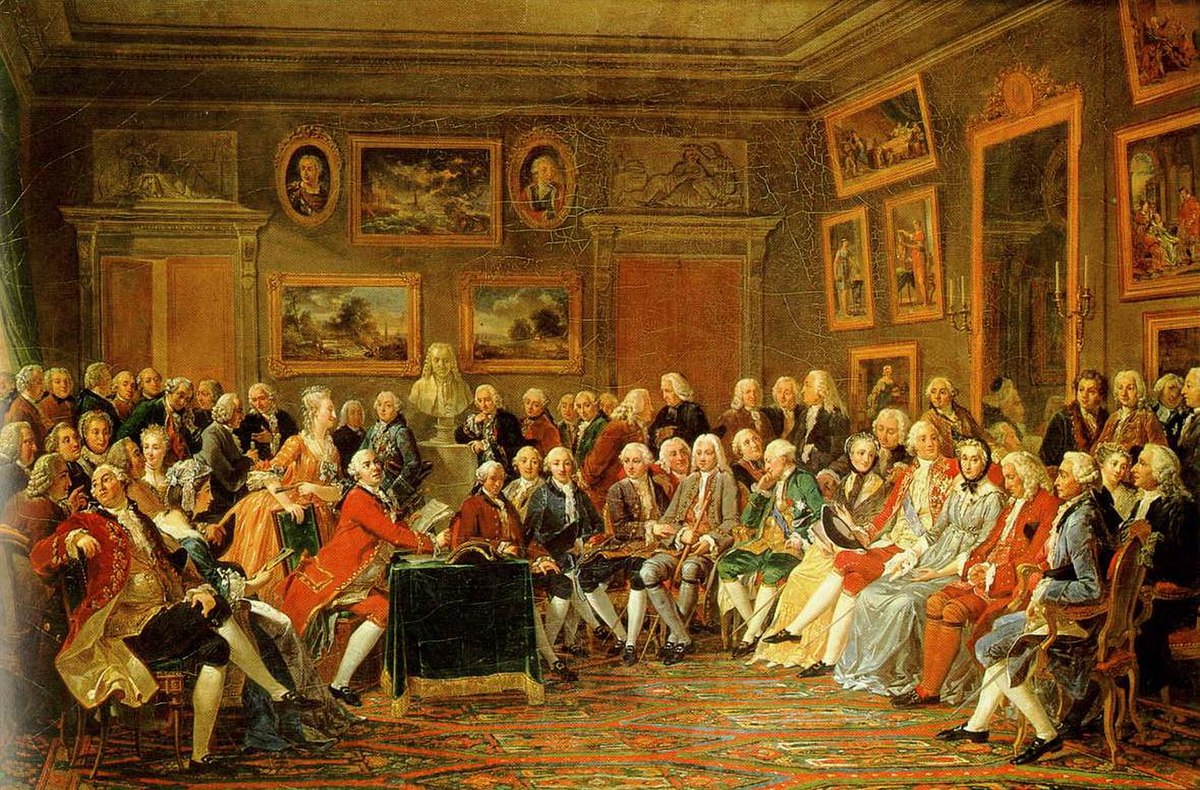
Age of Enlightenment
FranceThe "Philosophes" were 18th-century French intellectuals who dominated the French Enlightenment and were influential across Europe. Their interests were diverse, with experts in scientific, literary, philosophical and sociological matters. The ultimate goal of the philosophers was human progress; by concentrating on social and material sciences, they believed that a rational society was the only logical outcome of a freethinking and reasoned populace. They also advocated Deism and religious tolerance. Many believed religion had been used as a source of conflict since time eternal, and that logical, rational thought was the way forward for mankind.
The philosopher Denis Diderot was editor in chief of the famous Enlightenment accomplishment, the 72,000-article Encyclopédie (1751–72). It was made possible through a wide, complex network of relationships that maximized their influence. It sparked a revolution in learning throughout the enlightened world.
In the early part of the 18th century the movement was dominated by Voltaire and Montesquieu, but the movement grew in momentum as the century moved on. The opposition was partly undermined by dissensions within the Catholic Church, the gradual weakening of the absolute monarch and the numerous expensive wars. Thus the influence of the Philosophes spread. Around 1750 they reached their most influential period, as Montesquieu published Spirit of Laws (1748) and Jean Jacques Rousseau published Discourse on the Moral Effects of the Arts and Sciences (1750).
The leader of the French Enlightenment and a writer of enormous influence across Europe, was Voltaire (1694–1778). His many books included poems and plays; works of satire (Candide 1759); books on history, science, and philosophy, including numerous (anonymous) contributions to the Encyclopédie; and an extensive correspondence. A witty, tireless antagonist to the alliance between the French state and the church, he was exiled from France on a number of occasions. In exile in England he came to appreciate British thought and he popularized Isaac Newton in Europe.
Astronomy, chemistry, mathematics and technology flourished. French chemists such as Antoine Lavoisier worked to replace the archaic units of weights and measures by a coherent scientific system. Lavoisier also formulated the law of Conservation of mass and discovered oxygen and hydrogen.
